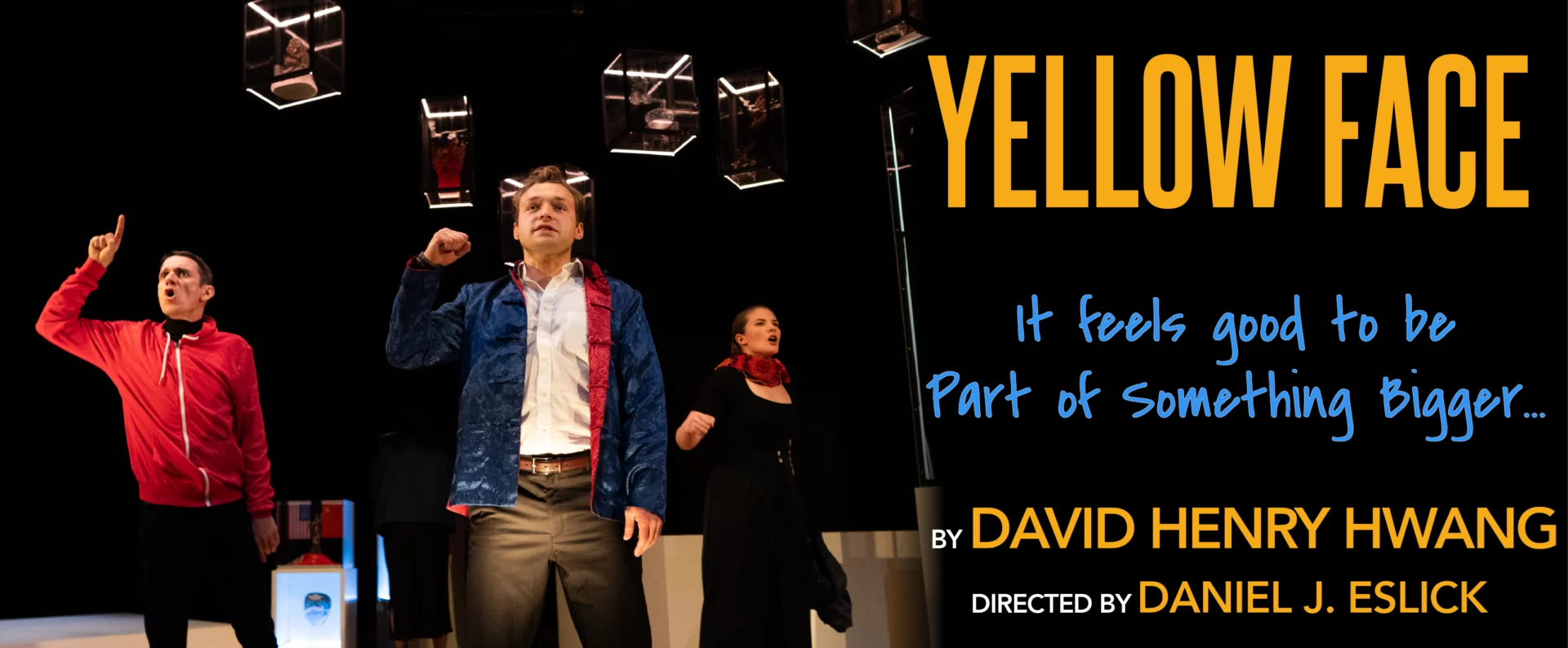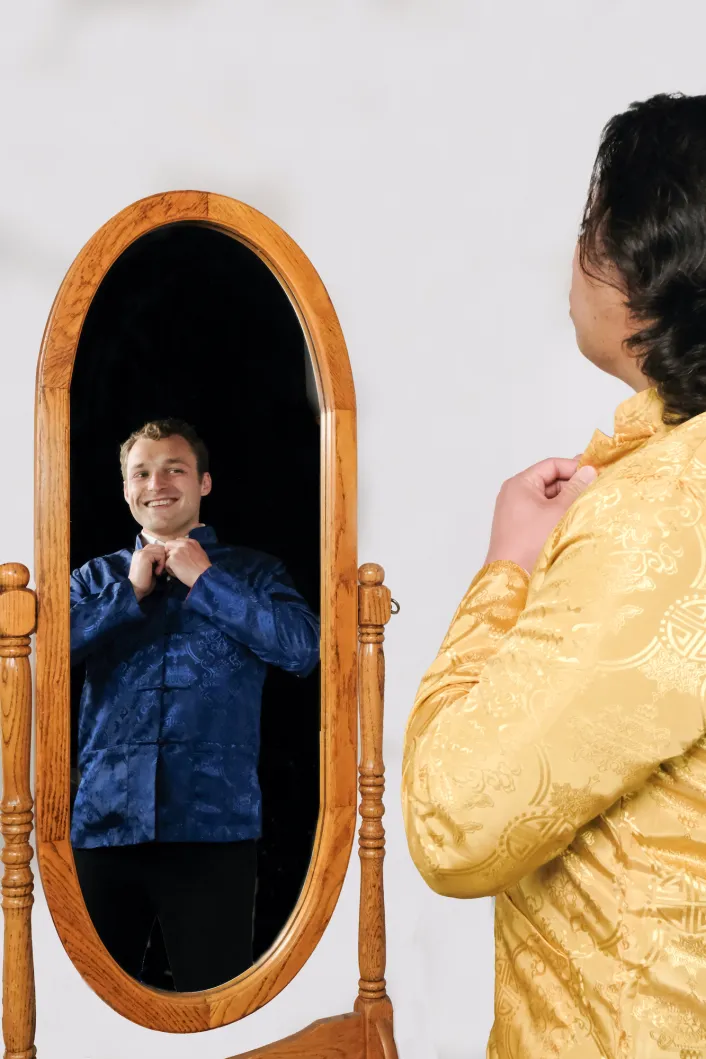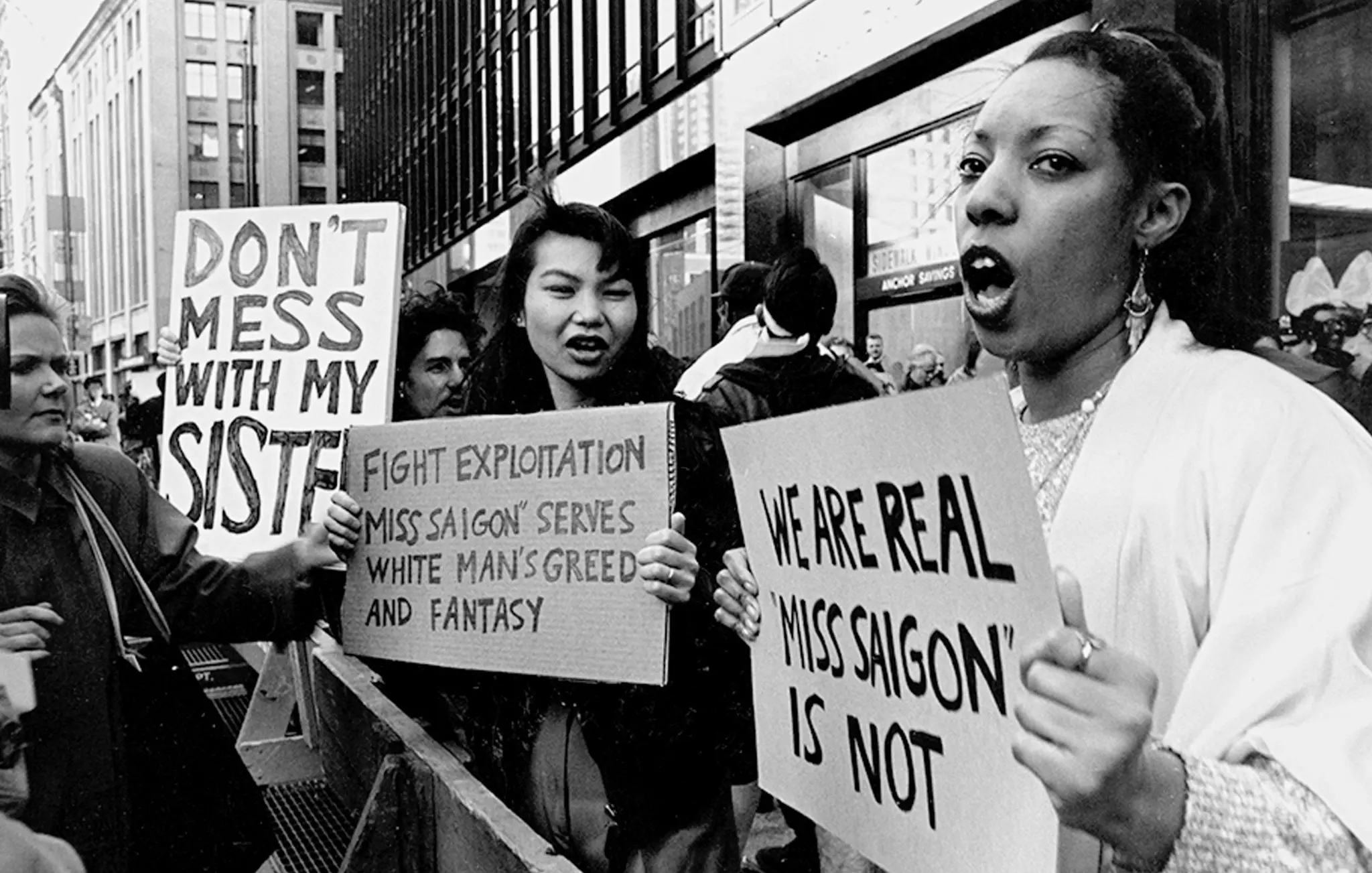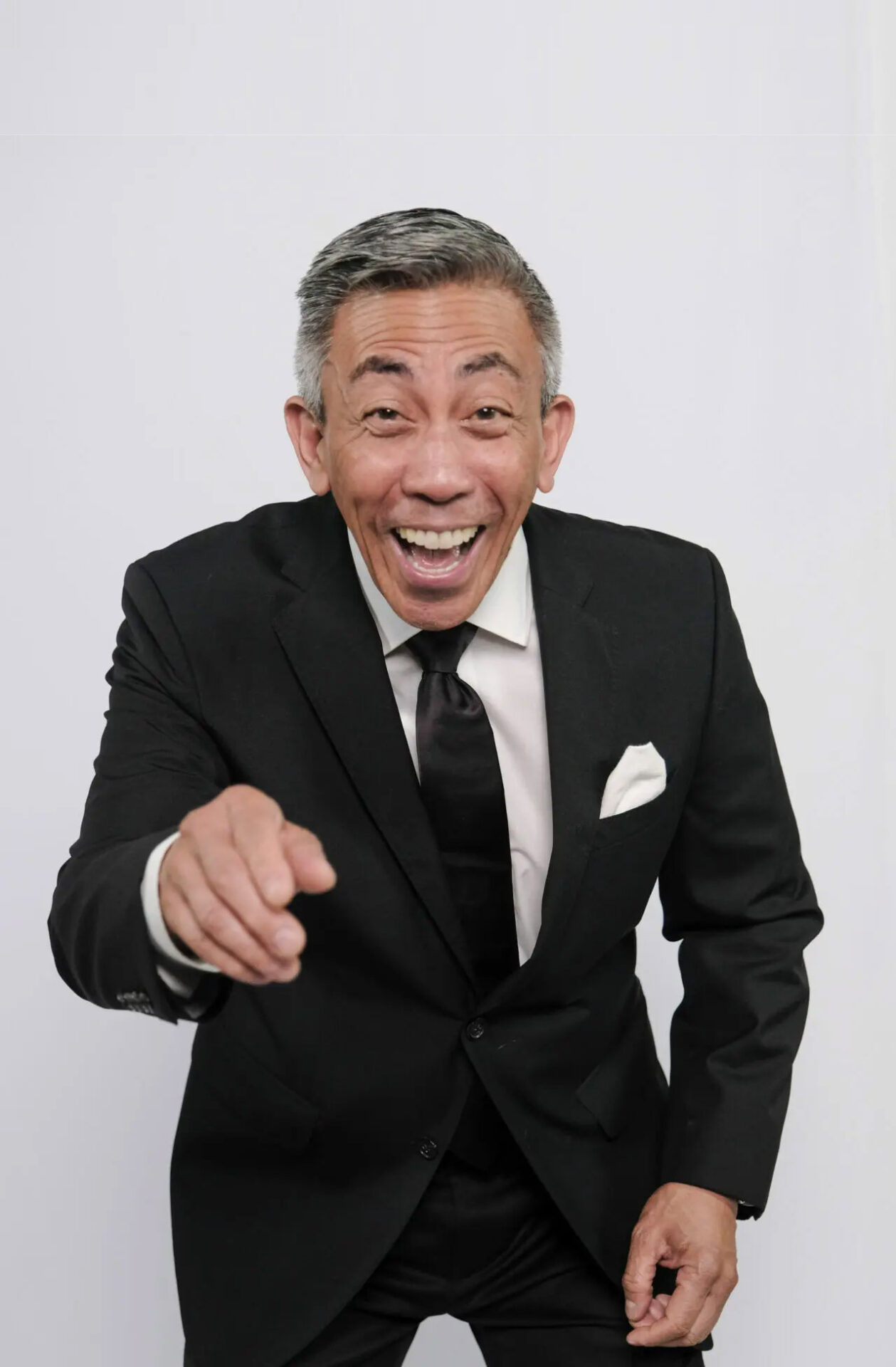
Inspired by real events, David Henry Hwang’s award-winning play, Yellow Face, follows a fictionalized version of the playwright himself as he accidentally casts a white actor to play an Asian role — shortly after protesting yellowface casting in another play. What unfolds is a biting dissection of representation, performativity, and the blurry line between real life and theater.
Yellow Face, which debuted in 2007 and was produced on Broadway in 2024 starring Daniel Dae Kim, earned an Obie Award for playwriting and was shortlisted for a Pulitzer Prize. Hwang was also the first Asian American to win a Tony Award for Best Play with M. Butterfly in 1988.
berkeleyside

“Miss Saigon” opened in London in 1989, with an acclaimed white British actor, Jonathan Pryce, wearing prosthetics to alter the shape of his eyes and makeup to alter the color of his skin as he played the show’s leading man, a scheming Eurasian pimp called the Engineer. But by the time the show reached Broadway in 1991, Mr. Pryce had abandoned those practices, and, after he won a Tony Award and left the show, the producers changed their approach — in the years since, they have chosen only actors of Asian heritage to play the Engineer, both on Broadway and on the United States tours.
Not every controversy has been calmed. The show’s critics, who tried and failed to stop the initial production and have periodically protested it since, say the production perpetuates an unwelcome view of Asians. Here, in edited excerpts, more than 20 people whose lives have been touched by “Miss Saigon” — as producers and protesters, artists and activists — talk about their views, then and now.
Michael Paulson – the new york times

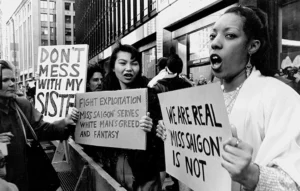
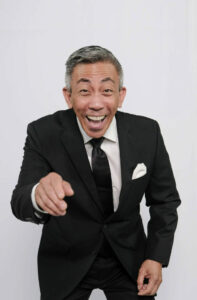
Playwright David Henry HwanG
David Henry Hwang’s stage works include the plays M. Butterfly, Yellow Face (revived on Broadway in 2024), Chinglish, The Dance and the Railroad, and FOB, as well as the musicals Aida, Soft Power, Flower Drum Song, and Disney’s Tarzan. Called America’s most produced living opera librettist, he has written thirteen libretti. Ainadamar with music by Osvaldo Golijov recently made its Metropolitan Opera premiere. Hwang was a Writer/Consulting Producer for the Golden Globe-winning television series The Affair and is currently creating and show running a new TV series, Billion Dollar Whale. A professor at Columbia University, he serves on the boards of the American Theatre Wing, Dramatists Guild, DGF, and the Entertainment Community Fund. Hwang is a Tony Award® winner and three-time nominee, a Grammy Award winner and two-time nominee, a three-time Obie Award winner, and a three-time Finalist for the Pulitzer Prize in Drama.
director DANIEL J. ESLICK
on YELLOW FACE
I’ve been thinking. About identity. About community. And honestly, it terrified me. Not just for our well-being, but because of what it reflects back at me. What does it mean to be a real ally? An imperfect one? How do I respond to my own community’s demand for perfection? And how do I face the failures of allyship around me? Maybe I don’t need to stare in the mirror too long—but I still need answers. And what better place to search than the theater? As an Asian American, I was drawn to David Henry Hwang’s Yellow Face. It’s a play about allyship—especially when it goes wrong. DHH fails his own community. Marcus Gee doesn’t know how to be an ally, so he exploits the moment. While it’s satirical… I’ve seen that play out in real life. More than once.
The play is over 15 years old, but still deeply relevant—enough to be revived on Broadway in 2024. When I directed a Champagne Staged Reading Series
production of the play last year, I focused on the characters’ ties to the AAPI community. But I barely scratched the surface. Hwang’s writing lives in that
blurry space: how do we support—and fail to support—our own identities?
The term “Asian American” carries so much weight. Sometimes I feel deeply connected to it. Sometimes it feels miles away. With this production, I tried to get closer to the why—why that identity means so much to me, and why it sometimes doesn’t feel like mine. So I staged the play inside a museum. Together with an amazing AAPI design team, we built a world around the text to examine it—and ourselves. We asked: why do these characters stumble? Why do some rise when allyship is challenged? And what does that say about American culture in 2025? About us? I don’t have the answers. Not even close. But I’m proud of the questions I’ve asked, the choices I’ve made, and the version of myself reflected back in this process—even the flawed parts. And maybe, just maybe, I understand a little more about what it means to be Asian American today. Hopefully, with time, I’ll stop scrutinizing the mirror so much. Hopefully.
